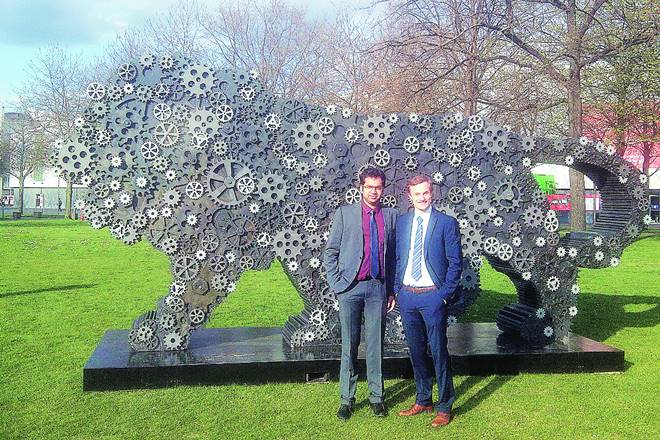Source – financialexpress.com
Businesses are mining data and discovering gold. But the riches hidden in massive public databases remain unexplored. Deciphering this data and analysing it can lead to better policies and favourable outcomes. CPC Analytics, an Indo-German start-up, hopes to solve real-world problems by leveraging this data through relevant analysis, insights and advice.
CPC Analytics was founded three and a half years ago by Sahil Deo and Christian Franz. They studied at the Hertie School of Governance in Berlin and graduated with Masters in Public Policy. Franz has expertise in macroeconomics, statistics and international health policy. Deo brings in expertise in technology and international finance. Complementing them was Viraj Kulkarni, who joined later as partner at CPC, as their chief data scientist. According to Deo, the two worked together on an EU integration project in Berlin and realised they could provide useful contribution. They chose to start a company even before they graduated for offering data-driven policy consulting in economics, health, energy and environment.
CPC aims to work in segments where the big technology companies, consultancies or start-ups are not interested in, especially the public sector space. CPC calls itself a diverse set of ‘curious and driven people’. Through an interdisciplinary approach that brings software engineers, economists, social scientists together, the team offers actionable insights from large and complex data sets. “We see ourselves as a boutique consulting firm to help with specific problems. The two pathways important to us are improving policy making and impact on public debate,” says Franz.
Deo and Franz were clear about keeping this an operation that simultaneously worked from Germany and India; so CPC operates out of Berlin, Pune and Strasbourg. While Franz handles the German front, Deo is in charge of Indian operations. The company straddles both worlds – “Germany where everything is established, and India where everything is super dynamic and open to changes with dramatic shifts” as Franz says.
“Public policy is dominated by older people. No start-ups or younger people are there in this space. But this is changing. Technology is disrupting and older people have no particular advantage,” says Deo. “Fewer firms work with the public sector institutions. We did not have a formal ecosystem, support, peer group or benchmark.”
At the start itself the duo decided they would shut shop if they did not get paid work. Thankfully, they did not need to do this as CPC has made money right from the start and does not face problems like the typical start-up as it keeps operations lean. Clients include WHO, UNAIDS, government of Nepal, Johns Hopkins University, GIZ of Germany, SIDBI, GFA, Rabin Martin, Graduate Institute Geneva, Public Affairs Centre and GFA.
However, work is erratic and Deo says they find the public sector more challenging. If CPC can sustain itself for a few more years it will have the first-mover advantage as sooner or later the public sector will adapt to the new technology landscape. As for now, the focus is on getting projects that are directly awarded and do not need to go through a tender process as they will not even qualify for those, says Deo.
